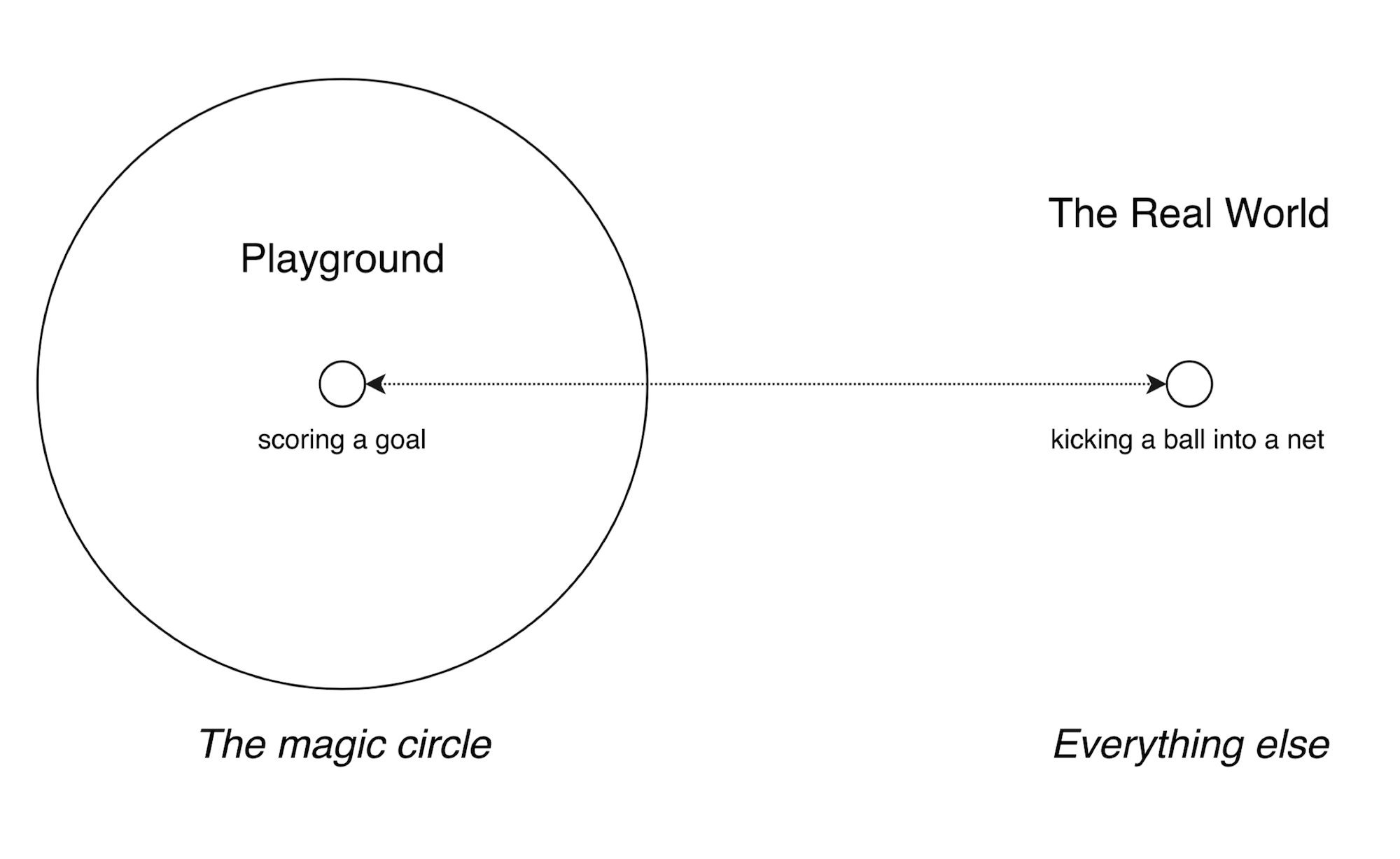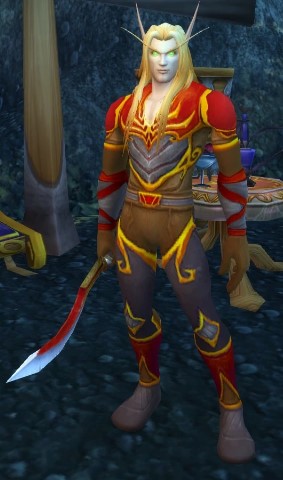
a quick explanation of the magic circle.

the blood elf in all his glory.
the power of avatars in world of warcraft
in the famous mmorpg world of warcraft, you start the game by building an avatar. i played for a very short time as a kid together with my brother. the avatar creation is what is recall the clearest. i remember my brother explaining how my choices would later implicate my game, and how it wasn't a solely creative output. despite the fact i had a hard time thinking strategically about my new, hybridized body. it was both a weird affirmation of my physical body, while also being an alter-ego, a virtuality. there was this interesting clash between the sort of sexualised female characters with big boobs, and me, a kid in 2004, not at all relating to these fantasy women.
i believe that all videogames are ubiquitous in different ways. i don't believe very much in the theory of the magic circle by johan huizinga [1]. the magic circle is a more or less concrete space, where the rules of reality are suspended and replaced with the rules of the game world. this theory is also from 1938, way before world of warcraft was a thing. it would be easy enough to create in argument saying: yes, within world of warcraft there are certain rules and the rules of reality are suspended. it would be easy enough to believe in the magic circle. but i believe there is something more complex happening. when we create an avatar, we bring a part of ourself into the game world. at the same time, our subjectivity is also re-configured by the rules of the game world, when we are not playing. i believe that videogames are omnipresent, because they also affect the players outside of their actual playing time. gaming is a constant, cybernetic feedback loop.
jenny sundén puts it quite tangibly in her essay about queer players in world of warcraft [2]. she describes how avatars can be linked to expressions of sexuality, and how utilizing gaming ("habitually coded as a masculine activity") to be a vessel for queer embodiment. she describes how the male blood elf with its slightly effeminate features has become an output for homophobia within the larger, straight world of warcraft-community. meanwhile it is also cherished among queer players. world of warcraft has an implied straightness to it, and playing as a blood elf has become a way of transgressing this straightness. it is not just an avatar, it is a pipeline to non-conforming gender expressions. it is significant beyond the screen. the ubiquity of the world of warcraft is tied to questions of identity and embodiment in actually quite literal ways.